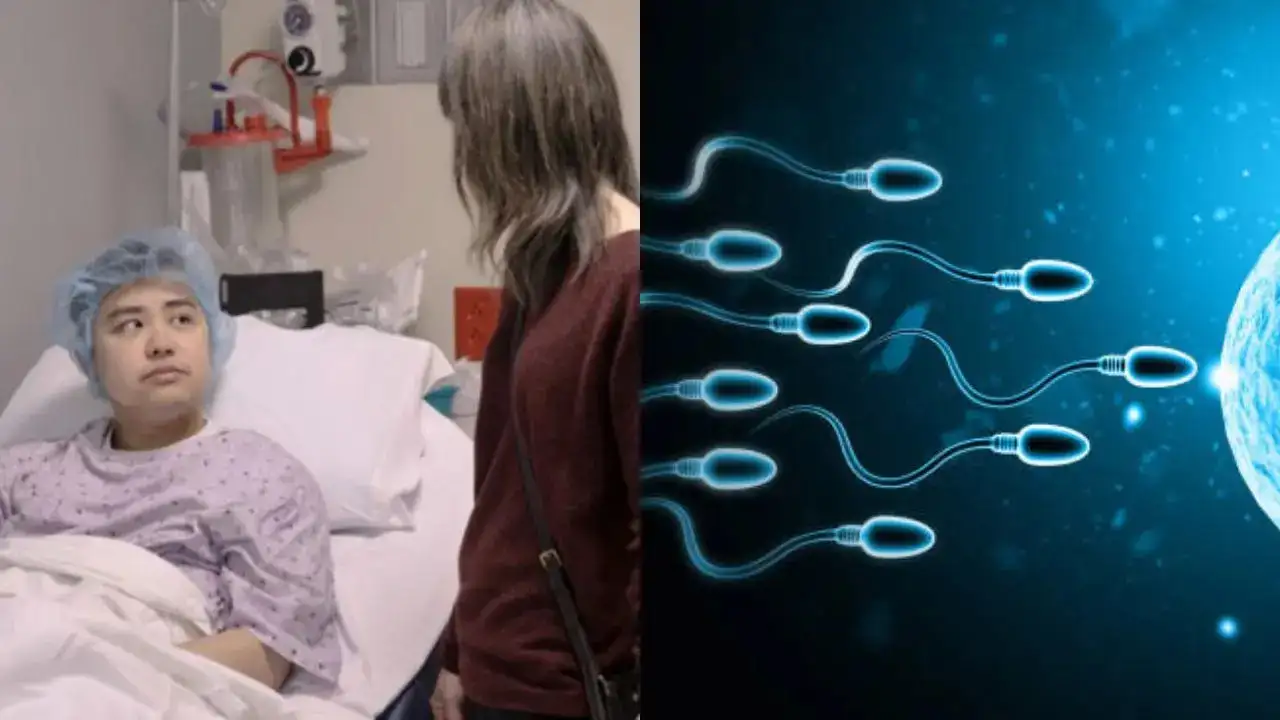
Jaiwen Hsu has received the world's first sperm-making stem cell transplant to restore his fertility (Pic: AP/iStock)
A young man from the US has received the world's first sperm-making stem cell transplant in a groundbreaking experiment aimed at reversing infertility. For 26-year-old Jaiwen Hsu, who suffered from azoospermia - a condition where no sperm is present in the semen—it gives a chance for him to father a child.
The condition, which affects around one per cent of men across the world, is often caused by hormonal imbalance or dysfunction, blockages in the reproductive tract, or even genetic issues. However, in Jaiwen's case, his infertility was due to chemotherapy that he had received as a child to treat bone cancer—taking a toll on his reproductive system.
How was the procedure conducted?
For the clinical trial, doctors from the University of Pittsburgh Medical Center used Jaiwen's stem cells - harvested and frozen when he was younger—way before his cancer treatment. These cells formed the sperms found in testicles from birth - reintroduced and transplanted into his reproductive system during the procedure.
An ultrasound was used by doctors to guide a small needle through the base of the scrotum into the rete testis - a part of the testicle where the cells were reintroduced. Experts now hope for a successful result that may mimic the natural process that occurs during puberty.
According to doctors, if the transplant succeeds, Jaiwen’s body will begin producing sperm soon. As of now, doctors have informed them that no sperm has yet been detected in his semen—however, the procedure did not damage his testicular tissue.
Jaiwen’s semen will be monitored twice a year to see if sperm cells begin to develop. “We’re not expecting a miracle result,” reproductive scientist Dr. Kyle Orwig, a professor at UP’s Department of Obstetrics, Gynaecology, and Reproductive Sciences, told the Associated Press. “What we expect is that the transplant of stem cells will produce a small amount of sperm and that to achieve a pregnancy with his partner he would need a follow-up assisted reproductive technology, like IVF," he added.
Stem cell procedure helpful for cancer patients
Experts say stem cell extraction is extremely helpful—especially for cancer survivors who are treated before puberty or men with genetic or acquired testicular failure.
Jaiwen’s trial, published in a paper on the preprint server medRxiv, shows that it is the first time that the procedure has been tried on a human. Until now, the procedure had only been tested in animals, where it successfully allowed male mice and monkeys to father offspring.
However, scientists have also noted that there is a possibility the patient may never recover full fertility due to the small amount of stem cells collected as a child.
Ways for men to boost fertility naturally
Regular exercise
According to studies, regular physical activity helps boost testosterone levels and improve the quality of semen.
Getting enough vitamin C
Vitamin C, an antioxidant, can help get over oxidative stress, which may happen due to a disease, older age, environmental pollutants, or not following a health-promoting lifestyle.
Minimise stress
Stress and burnout are associated with erectile dysfunction and reduced sexual satisfaction. Stress is also linked with a reduction in sperm quality. You can reduce stress by taking a walk, meditating, exercising, or getting professional help.
Getting enough zinc
Zinc is an extremely essential mineral found in high amounts in animal foods, such as meat, fish, eggs, and shellfish. A good amount of zinc is one of the cornerstones of male fertility.
Get Latest News Live on Times Now along with Breaking News and Top Headlines from Health and around the world.
